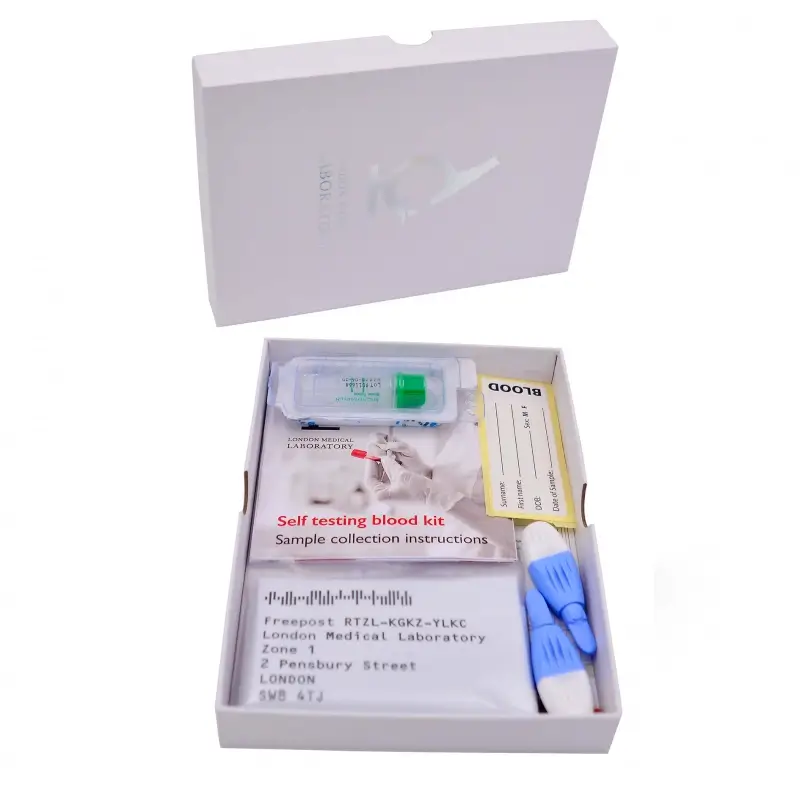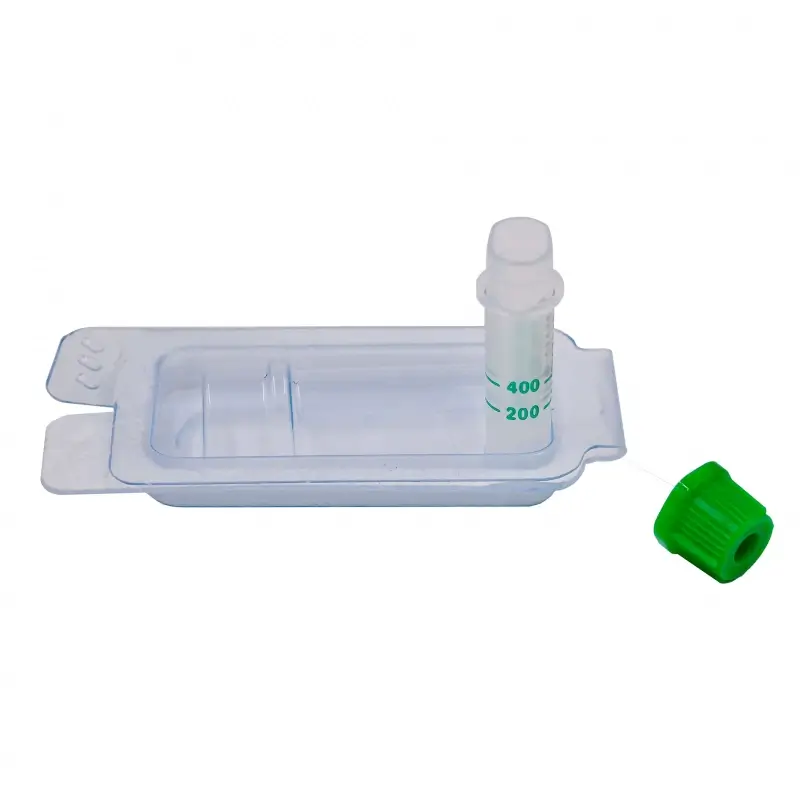
Sports Fitness Profile
Amiry & Gilbride Pharmacy, in partnership with London Medical Laboratory, offers a specialised testing service tailored for those interested in gauging their fitness levels for sporting activities.
Introduction
This detailed fitness profile is perfect for anyone seeking to evaluate their physical readiness for sports or monitor their progress during a fitness programme. Whether you’re about to start a new exercise routine or want to measure how your body responds to physical challenges over time, this profile provides essential insights.
This profile incorporates a comprehensive selection of biomarkers, each significant to sports performance and general health. These include a Full Blood Count, tests assessing liver and kidney function, iron and ferritin levels, as well as markers for heart and muscle enzymes, cholesterol, inflammation, magnesium, vitamins D and B12, and testosterone. This suite of tests allows us to monitor your body’s overall condition and track any changes or emerging health concerns, offering a clear indication of how well your body is responding to your fitness routine. Any abnormalities or areas requiring attention can be flagged for further investigation.
By understanding how your body functions at a deeper level, athletes and fitness enthusiasts can gain a distinct advantage, making informed decisions about training, nutrition, and recovery.
How does this test work?
There is no more reliable way to detect underlying health conditions or monitor existing issues than through a blood test. Blood tests allow for the detection of various markers, offering a broad view of your overall health, especially in relation to fitness and performance.
Whether you’re concerned about your well-being, you are managing a chronic condition, or you are simply curious about your fitness level, a blood test provides an efficient, cost-effective, and straightforward approach to gaining insights into your body’s internal health.
We offer an in-store service that ensures a simple, stress-free, and convenient experience. Once the blood sample is collected, results are typically available within five to seven days.
However, it’s important to keep in mind that blood test results alone should not be used for self-diagnosis. They are best used in conjunction with advice from a healthcare professional. If you experience any symptoms or have concerns, it’s essential to consult a doctor or an appropriately trained health professional before initiating any treatment or making significant changes to your fitness routine.


What do you test?
Blood cells (1 Biomarker)
A full blood count is a crucial diagnostic tool used to assess your overall health. It can help identify a wide array of health concerns, from infections and anaemia to more severe conditions such as leukaemia. A full blood count provides a detailed analysis of red blood cells, white blood cells, and platelets. This test requires an in-store appointment, as it cannot be performed with a finger-prick sample.
Full Blood Count
The Full Blood Count (FBC) is an essential test that measures the different types of cells circulating in your blood. Red blood cells, which contain haemoglobin, are responsible for transporting oxygen to the body’s tissues. White blood cells play a vital role in the immune system, protecting the body from bacteria, viruses, and other pathogens. Platelets are involved in the blood-clotting process. FBC testing serves as a screening tool for various conditions, including infections, inflammation, and disorders like anaemia.
For athletes, monitoring red blood cell levels is particularly important, as haemoglobin is key for oxygen delivery during endurance activities. A reduction in red blood cells can lead to fatigue and reduced performance, while abnormal levels of white blood cells might indicate an infection or chronic inflammation that could hinder recovery and training.
Cholesterol (5 Biomarkers)
Cholesterol plays a crucial role in your body’s overall function, but elevated cholesterol levels can lead to the buildup of plaque in the arteries, increasing the risk of heart disease, heart attacks, or strokes. Testing cholesterol levels provides valuable information about your cardiovascular health and helps identify areas for improvement through dietary and lifestyle adjustments.
Total Cholesterol
This test measures the total amount of cholesterol circulating in the bloodstream. Cholesterol is a fat-like substance necessary for the production of hormones, cell membranes, and vitamin D. However, too much cholesterol can lead to the narrowing and hardening of arteries, increasing the risk of cardiovascular diseases. Monitoring your total cholesterol allows you to understand your heart disease risk and take preventive measures if needed.
High-Density Lipoprotein (HDL)
Often called the “good” cholesterol, HDL works by transporting cholesterol away from the arteries and back to the liver, where it’s broken down and removed from the body. Higher levels of HDL are beneficial as they help protect against heart disease. An HDL test provides insights into how effectively your body is managing cholesterol, offering crucial information for those engaged in rigorous physical activity or those at risk of heart disease.
Low-Density Lipoprotein (LDL)
Commonly known as “bad” cholesterol, LDL can build up in the walls of arteries, leading to a condition called atherosclerosis, which narrows the arteries and restricts blood flow. Elevated LDL levels increase the risk of heart attacks and strokes. An LDL test helps evaluate the risk of cardiovascular disease and suggests whether changes in diet or medication are needed to manage cholesterol levels.
Total Cholesterol to HDL Ratio
This ratio provides a more complete picture of your cholesterol status by comparing your total cholesterol to your HDL levels. A higher ratio may indicate an increased risk for heart disease, while a lower ratio is generally more protective. Athletes, particularly those involved in endurance sports, should pay attention to this ratio, as optimal cardiovascular health is essential for sustained performance.
Triglycerides
Triglycerides are a type of fat found in your blood. High levels of triglycerides can increase the risk of heart disease, particularly when combined with high cholesterol. A test for triglycerides helps to provide a full picture of your lipid profile and assists in determining the overall risk of cardiovascular problems.
Maintaining healthy cholesterol and triglyceride levels is essential for athletes, as cardiovascular fitness directly affects performance, stamina, and recovery.
Gout (1 Biomarker)
Gout is a painful form of arthritis that can affect anyone and is caused by high levels of uric acid in the blood. Uric acid can crystallise and accumulate in the joints, causing intense pain and swelling. Regular monitoring of uric acid levels can help manage gout symptoms and prevent future flare-ups.
Urate (Uric Acid)
Urate is a byproduct of the breakdown of purines, substances found naturally in the body and in certain foods, such as red meat and alcohol. Normally, urate is eliminated through the kidneys, but in some cases, it can build up, leading to gout or kidney stones. Testing urate levels is crucial for diagnosing gout and understanding the causes of recurrent kidney stones, providing insight into how diet and lifestyle may need to be adjusted.
Hormones (1 Biomarker)
Hormones are responsible for regulating many of the body’s vital processes, including metabolism, growth, and reproduction. Imbalances in hormone levels can lead to a range of health problems, from fatigue and weight changes to fertility issues and mood disturbances.
Testosterone
Testosterone is a steroid hormone produced primarily in the testes for men and in smaller amounts by the ovaries and adrenal glands for women. Testosterone is crucial for developing muscle mass, maintaining bone density, and regulating the male sex drive. It also plays a critical role in athletic performance by promoting muscle growth and recovery. A testosterone test can help diagnose conditions such as low testosterone, erectile dysfunction, and infertility in men. In women, testosterone levels can provide insight into hormonal balance and overall health.
Testosterone levels are particularly important for athletes, as they directly affect muscle strength, endurance, and recovery times after intense training sessions.
Inflammation (1 Biomarker)
Inflammation is a natural response of the immune system to injury or infection. While short-term inflammation helps the body heal, chronic inflammation can be harmful and lead to long-term health problems.
High-Sensitivity C-Reactive Protein (hs-CRP)
C-reactive protein (CRP) is produced by the liver in response to inflammation. The high-sensitivity CRP test measures even small amounts of CRP in the blood, which can indicate low-grade inflammation, often linked to an increased risk of cardiovascular disease. For athletes, elevated CRP levels might indicate overtraining, inadequate recovery, or underlying health issues that need attention.
Iron Studies (6 Biomarkers)
Iron is essential for producing red blood cells and transporting oxygen throughout the body. Iron deficiency can lead to anaemia, causing fatigue, weakness, and impaired physical performance.
Iron
Iron is a critical component of haemoglobin, the protein in red blood cells that carries oxygen. A lack of iron can lead to anaemia, which can significantly impact your energy levels and athletic performance. Testing your iron levels helps detect deficiencies early, allowing for appropriate dietary or supplement adjustments.
Total Iron Binding Capacity (TIBC)
TIBC measures how much iron your blood can carry. This test helps diagnose iron deficiency or overload and can indicate whether your body has enough transferrin, a protein that binds to iron and transports it in the blood. Low TIBC levels can suggest liver disease, while high levels may indicate iron deficiency anaemia.
Unsaturated Iron Binding Capacity (UIBC)
UIBC tests measure the amount of transferrin available to bind to iron. It helps doctors evaluate iron status and monitor the effectiveness of treatments for iron-related disorders, such as iron overload or deficiency.
Ferritin
Ferritin is a protein that stores iron in the body. Testing ferritin levels gives insight into how much iron is stored in your body’s tissues, providing a more complete picture of your iron status. Low ferritin levels suggest iron deficiency, while high levels may indicate liver disease or other underlying conditions.
Transferrin
Transferrin is the primary protein that binds to iron and carries it through the bloodstream. Testing transferrin levels helps determine whether your body is getting enough iron and is commonly used to diagnose anaemia and monitor iron-related conditions.
Creatine Kinase
Creatine kinase is an enzyme found in the muscles and heart. Elevated levels can indicate muscle damage or disorders, such as muscular dystrophy or heart conditions. Monitoring creatine kinase levels can help athletes detect overtraining or muscle injury before more serious problems arise.
Kidney Function (5 Biomarkers)
The kidneys are responsible for filtering waste from the blood, regulating electrolytes, and maintaining fluid balance. Testing kidney function is crucial for overall health and well-being, especially for athletes who need to ensure proper hydration and recovery.
Urea
Urea is a waste product created when the body breaks down proteins. Testing urea levels provides insight into how well the kidneys are functioning and helps diagnose kidney problems, dehydration, or other metabolic issues.
Creatinine
Creatinine is a byproduct of muscle metabolism that is filtered out of the blood by the kidneys. Elevated creatinine levels can indicate kidney dysfunction or excessive muscle breakdown, making this an important test for athletes involved in intense physical training.
Glomerular Filtration Rate (GFR)
GFR measures how efficiently the kidneys are filtering waste from the blood. This test is vital for detecting early signs of kidney damage or monitoring chronic kidney conditions. A healthy GFR is essential for athletes who rely on optimal kidney function to manage hydration and electrolyte balance.
Calcium
Calcium is vital for bone health, muscle function, and blood clotting. Testing calcium levels helps detect conditions related to bone health, heart function, and kidney health. Maintaining proper calcium levels is especially important for athletes involved in weight-bearing activities, as it affects bone strength and muscle contractions.
Adjusted Calcium
Also known as corrected calcium, this test calculates the amount of calcium in the blood, accounting for protein levels such as albumin. It provides a more accurate picture of calcium availability, helping to diagnose conditions related to bone, heart, and kidney health.
Liver Function (8 Biomarkers)
The liver is essential for detoxifying the blood, producing proteins, and regulating metabolism. Proper liver function is crucial for overall health, especially for athletes who may be exposed to higher levels of oxidative stress and toxins from intense physical activity.
Albumin
Albumin is a protein made by the liver that helps maintain fluid balance and transport hormones, vitamins, and drugs throughout the body. Low albumin levels can indicate liver or kidney disease, while high levels may suggest dehydration or other metabolic issues.
Globulin
Globulin is a group of proteins produced by the liver and immune system. It plays a role in liver function, blood clotting, and fighting infections. Testing globulin levels can help diagnose liver disease, kidney disorders, and immune deficiencies.
Total Protein
Total Protein measures the combined levels of albumin and globulin in your blood. Testing total protein levels helps assess liver function, immune system health, and nutritional status.
Alkaline Phosphatase (ALP)
ALP is an enzyme found in the liver and bones. Raised ALP levels may be a sign of liver or bone disease, while low levels can suggest malnutrition or other health issues. Monitoring ALP is crucial for diagnosing liver and bone disorders.
Alanine Transaminase (ALT)
ALT is an enzyme that is found primarily in the liver. Elevated ALT levels can be a sign of liver damage or disease, making this test important for athletes who may be exposed to toxins or who are experiencing muscle breakdown.
Aspartate Aminotransferase (AST)
AST is another enzyme that is released into the bloodstream when there is damage to the liver, heart, or muscles. Elevated AST levels may indicate liver disease, heart problems, or muscle damage.
Gamma-Glutamyl Transferase (GGT)
GGT is an enzyme involved in the metabolism of drugs and toxins in the liver. Elevated GGT levels may suggest liver disease or bile duct issues, making it an important test for monitoring liver health.
Total Bilirubin
Bilirubin is a byproduct of the breakdown of red blood cells. Elevated bilirubin levels can indicate liver disease or certain types of anaemia. Testing bilirubin levels helps monitor liver function and diagnose conditions related to red blood cell breakdown.
Vitamins (2 Biomarkers)
Vitamins are essential for normal cell function, growth, and development. Deficiencies in key vitamins can lead to a variety of health problems, from fatigue and muscle weakness to more serious conditions like osteoporosis and heart disease.
Vitamin D
Vitamin D is crucial for calcium absorption, bone health, and immune function. Testing for vitamin D deficiency helps identify the need for dietary changes or supplements to improve bone density and overall health.
Vitamin B12
Vitamin B12 is necessary for red blood cell production, nerve function, and DNA synthesis. A deficiency in B12 can lead to anaemia, fatigue, and neurological issues. Testing B12 levels helps diagnose the cause of anaemia and monitor overall health.
FAQs
Why are vitamins essential for athletes?
Vitamins are critical for athletes because they support energy production, recovery, and overall health. Micronutrients like vitamin D and B12 play key roles in muscle function, immune health, and recovery after intense physical activity. Ensuring adequate vitamin intake helps optimise performance and reduce the risk of injury or illness.
What triggers inflammation in athletes?
Inflammation can be caused by intense physical activity, injuries, or poor recovery practices. Acute inflammation is a normal response to exercise, but chronic inflammation can signal underlying health issues or overtraining. Monitoring inflammation markers like CRP helps athletes manage recovery and avoid long-term health problems.
Should I expect low cholesterol if I work out regularly?
While exercise can help lower cholesterol levels, genetics and diet also play a significant role. Some individuals may have high cholesterol despite regular physical activity, particularly if they have a genetic predisposition or consume a diet high in saturated fats. Monitoring cholesterol levels helps athletes make informed dietary and lifestyle choices.
How does testosterone influence athletic ability?
Testosterone is essential for muscle growth, recovery, and overall athletic performance. Higher testosterone levels can lead to increased strength, endurance, and muscle mass, making it a critical hormone for athletes involved in resistance training or high-intensity sports.



